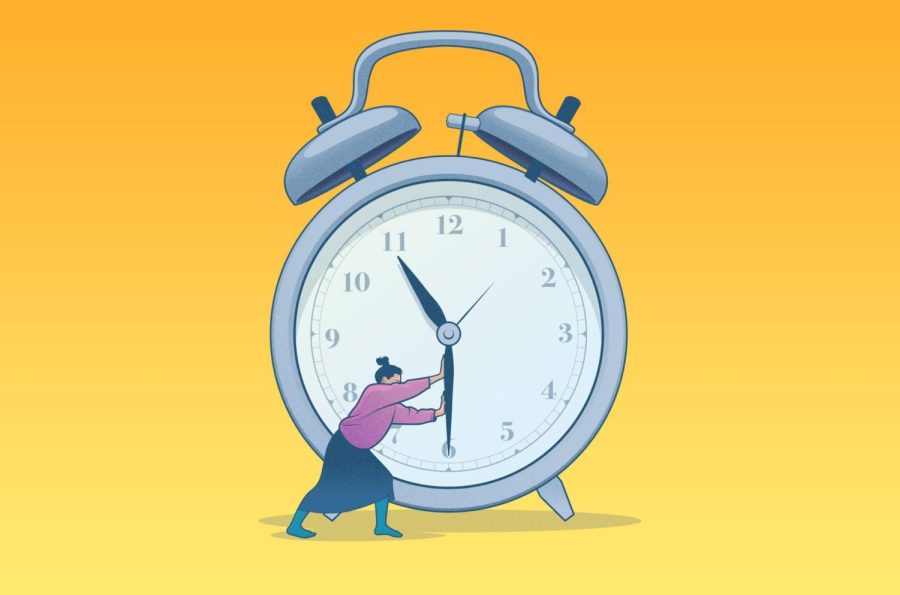Time to Decide on the Time
Arguments arise over the potential implementation of a permanent daylight saving time
Time change can greatly affect Americans and their daily routines.
April 22, 2022
Beginning in the days of World War 1, the idea of daylight saving time has become a prominent aspect of life across the world. It first started to be used by Germany to conserve fuel for the war by having more natural light, resulting in a decrease of artificial light usage. Soon after, multiple other countries followed suit. It received mixed reviews, thus being widely abolished after the way.
The idea follows the basis that at 2 a.m. each November, the clocks are moved back an hour and are moved forward again by an hour during March, providing better use of daylight. All states in the U.S. except for Hawaii and parts of Arizona participate in the temporal change. To this day, the idea receives criticism and has sparked controversy about whether there is a better system that could be in place.
Payson Valinski (10) does not like having to lose an hour of sleep during March.
“I would rather have daylight saving time all the time because I lose an hour of sleep and I like having the extra hour of light at night instead of the morning,” Valinski said.
On March 15, just two days after daylight saving time for 2022 began, a bill was passed through the U.S. Senate that was attempting to make daylight saving time permanent, so that clocks would not have to be turned back an hour. This causes the darkness that would normally come from an early sunset to change into a later sunrise in the mornings. The increased daylight brought with this supports activity later in the day, as well as an increase in public safety through a decrease in crime. The lack of losing or gaining an hour could improve health worldwide, as there is an increased rate in strokes, car crashes, heart attacks, sleep issues, and other potential health problems caused by the lack of sleep. The lack of light in the mornings and presence of light in the evening can also disrupt the body’s ability to wake up or go to sleep.
Jessica Stevens is an English teacher at SHS and does not like the change of gaining and losing an hour due to the disruption of her two daughters’ circadian rhythms.
“I’d love to get rid of daylight saving time,” Stevens said. “The change of time, especially in the spring, always throws people off for several weeks. Shifting the time back and forth, even if it is only twice a year, disrupts our circadian rhythms and sleep patterns. We know that teenagers need more quality sleep so disrupting their already fragile sleep schedules is difficult.”
The last time that permanent daylight saving time was in place in 1975, it was widely supported prior to being in practice, but it ended up being met with backlash after experiencing it first-hand. Americans did not like going to school or work in the dark during the winter, with the sunrise being as late as 8:30 a.m. to 9 a.m. After incidents regarding traffic safety because of the darkness in the morning, the bill was called for a repeal after a grow in public disapproval.
Nikita Herczynski (9) likes how long days are during the wintertime.
“I do and don’t support permanent daylight saving time. It could be nice, so I don’t have to get used to different times, but I also like the way it is now though because I like that it gets dark late in the summer and early in the winter,” Herczynski said.
While some argue that a permanent time in and of itself is not a good idea, others argue that standard time, the time in place from November to March, should be permanent. Sleep experts argue that standard time is more aligned with the body’s circadian rhythm, the darkness falling earlier signaling to the body that it is time to go to sleep.
Lily Smith (10) does not like the inconsistency that some states participate in daylight saving time and some don’t.
“I support permanent daylight saving time because I don’t think that there is a point in changing the time. Permanent daylight saving time would make it easier for the country because right now some states have daylight saving time and some states don’t,” Smith said.




